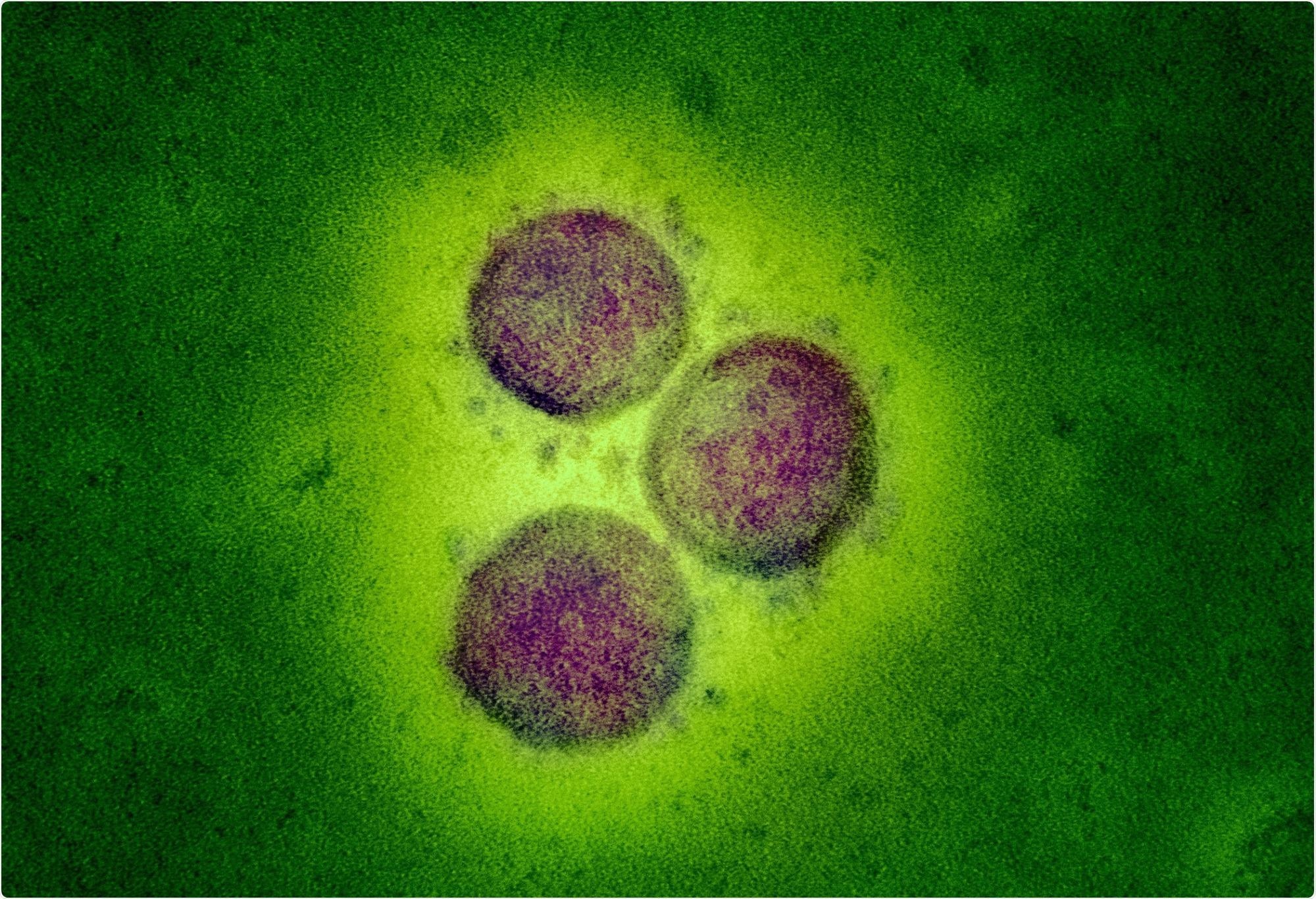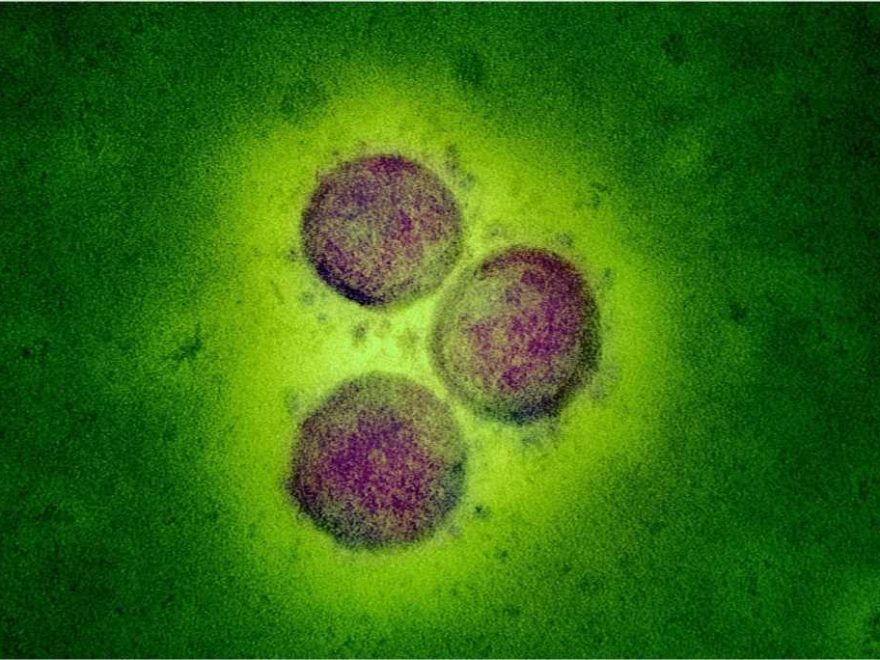In a recent study published in the journal International Journal of Environmental Research and Public Health, a team of researchers reviewed published literature that assessed the effects of severe acute respiratory syndrome coronavirus 2 (SARS-CoV-2) infection on female reproductive health.
 Study: The Effects of SARS-CoV-2 Infection on Female Fertility: A Review of the Literature. Image Credit: NIAID
Study: The Effects of SARS-CoV-2 Infection on Female Fertility: A Review of the Literature. Image Credit: NIAID
Introduction
Concerns about the effect of coronavirus disease 2019 (COVID-19) on female productivity arose after abnormalities like frequency and regularity of the menstrual cycle, altered menstrual duration and volume, worsened premenstrual syndrome, and increased dysmenorrhea was reported by women around the globe.
The SARS-CoV-2 virus has been shown to invade organs with high angiotensin-converting enzyme 2 (ACE2) expression, including the ovary, vagina, uterus, and placenta. Therefore, it can be opined that SARS-CoV-2 infection can adversely affect female fertility.
About the study
The study aimed to review research investigating the effects of COVID-19 infection on the menstrual cycle, hormones, ovarian reserve, endometrium, oocytes, follicular fluid, and embryos.
98 articles were selected for this review, while 25 papers were studied after excluding all duplicate research. This research included cross-sectional online questionnaires, prospective cohort studies, online surveys, retrospective cohort studies, observational studies, and retrospective cross-sectional studies.
All study designs included women belonging to the reproductive age of 18-45 were included. Women with pre-existing health issues like bleeding problems, irregular menses, thyroid disease, urinary incontinence, high prolactin, hepatitis B, C or HIV, chronic renal insufficiency, cancer, surgical removal of the uterus were excluded from the study.
Results
The study results showed significant changes in altered menstruation onset, prolonged menstrual cycle, changed the menstrual volume, bouts of amenorrhoea, and reduced libido in COVID-19-infected women. Although the extent of differences in adverse effects on the menstrual volume was not significant in patients with mild and severe SARS-CoV-2 infections, notable differences were found in the menstrual length of the patients depending on the severity of the infection.
The higher follicle-stimulating hormone (FSH) levels, more elevated prolactin, and higher testosterone levels observed in COVID-19 patients indicated possible adverse effects of SARS-CoV-2 infection. In addition, positive levels of the SARS-CoV-2 Immunoglobulin G (IgG) were found in the follicular fluids of COVID-19-recovered females. ‘
Oxidative stress was also observed to increase in SARS-CoV-2-infected women, which indicated adverse effects on oocytes and embryos; this, in turn, can impact female fertility.
The study results provided evidence that changes in the menstrual cycle were more pronounced in women over 45 years of age, which could be attributed to the hypersensitive gonadal hormones in the perimenopausal period.
Conclusion
The study results show that the consequences of SARS-CoV-2 infection on female endometrium might be less significant because of the regenerative nature of the endometrium.
No impact of SARS-CoV-2 infection was observed on serum anti-mullerian hormone (AMH) and heparan sulfate proteoglycan 2 (HSPG2) in follicular fluid. However, a significant effect of the virus was seen particularly in the reduced number and quality of embryos, which can further impact female fertility.
The researchers believed that further investigation of the effects of COVID-19 on the female menstrual cycle is needed to understand the mechanism involved. In addition, they opined that since stress can cause menstrual changes, the stress related to the COVID-19 pandemic might be also have played a significant role in these changes.
- The Effects of SARS-CoV-2 Infection on Female Fertility: A Review of the Literature, Carp-Veliscu, A.; Mehedintu, C.; Frincu, F.; Bratila, E.; Rasu, S.; Iordache, I.; Bordea, A.; Braga, M. International Journal of Environmental Research and Public Health, 2022, 19, 984, DOI: https://doi.org/10.3390/ijerph19020984, https://www.mdpi.com/1660-4601/19/2/984
Posted in: Medical Research News | Medical Condition News | Women's Health News | Disease/Infection News
Tags: ACE2, Angiotensin, Angiotensin-Converting Enzyme 2, Bleeding, Cancer, Chronic, Coronavirus, Coronavirus Disease COVID-19, covid-19, Dysmenorrhea, Endometrium, Enzyme, Fertility, Frequency, Hepatitis, Hepatitis B, HIV, Hormone, Immunoglobulin, Incontinence, Libido, Menstruation, Oxidative Stress, Pandemic, Placenta, Premenstrual Syndrome, Prolactin, Proteoglycan, Public Health, Reproductive Health, Research, Respiratory, SARS, SARS-CoV-2, Severe Acute Respiratory, Severe Acute Respiratory Syndrome, Stress, Stress Related, Syndrome, Testosterone, Thyroid, Thyroid Disease, Urinary Incontinence, Uterus, Vagina, Virus

Written by
Susha Cheriyedath
Susha has a Bachelor of Science (B.Sc.) degree in Chemistry and Master of Science (M.Sc) degree in Biochemistry from the University of Calicut, India. She always had a keen interest in medical and health science. As part of her masters degree, she specialized in Biochemistry, with an emphasis on Microbiology, Physiology, Biotechnology, and Nutrition. In her spare time, she loves to cook up a storm in the kitchen with her super-messy baking experiments.
Source: Read Full Article
